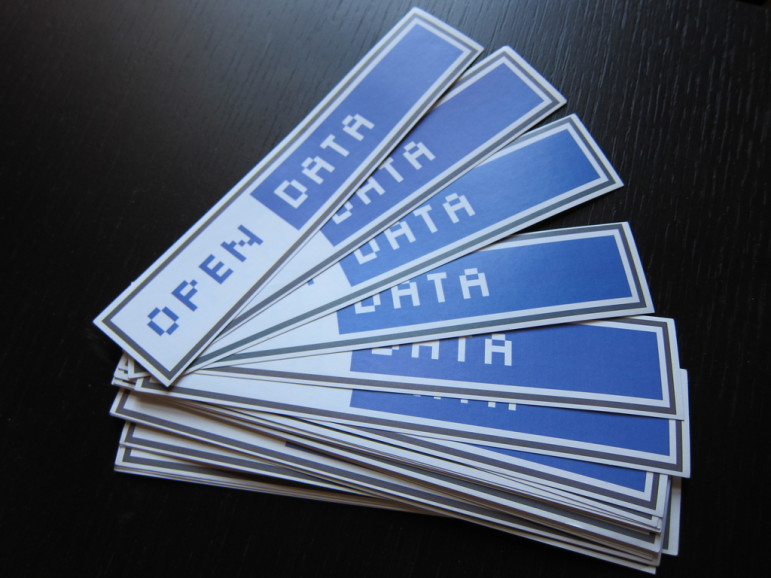

Open Data Movement Reaches Turning Point
Only one-tenth of national data is really open and free, according to the third annual Open Data Barometer by the World Wide Web Foundation.
The Barometer looks at 15 general categories of data, such as health, environment and crime (not at specific datasets), in 92 countries. The evaluative information is gathered through surveys of governments and country experts.
To be considered “open” the data must be online, machine readable, open-licensed, available for bulk download and free of charge. The report says that most of the datasets (76%) are available online in some form, but they do not meet the other standards. Only about half is available in a machine-readable format, and, of that only half is available for download in bulk. The methodology is described here.
The level of openness is at about the same level found in last year’s report, which comments, “Even with the rapid spread of open government data plans and policies, too much critical data remains locked in government filing cabinets.”
The report recommends, “Open data advocates should work more closely with transparency, privacy and right to information activists to achieve better mutual understanding and coordination of efforts.”
The survey also includes an assessment of whether freedom of information laws are working, concluding that many are not. (See WWF FOI rankings here, more below.)
Openwashing Concerns
The majority of the countries in the survey (55%) “now have an open data initiative in place and a national data catalogue providing access to datasets available for re-use,” according to the study, which also reports that new open data initiatives are getting underway in a number of countries.
“Many governments have advertised their open data policies as a way to burnish their democratic and transparent credentials,” the report says. It also states:
Open data initiatives cannot be effective if not supported by a culture of openness where citizens are encouraged to ask questions and engage, and supported by a legal framework. Disturbingly, in this edition we saw a backslide on freedom of information, transparency, accountability, and privacy indicators in some countries. Until all these factors are in place, open data cannot be a true SDG accelerator. (Referring to the Sustainable Development goals. – Ed.)
Getting individual ministries to allocate the budget and staff needed to publish their data “is often an uphill battle, and investment in building user capacity (both inside and outside of government) is scarce,” the report says. It continues:
Open data is not yet entrenched in law or policy, and the legal frameworks supporting most open data initiatives are weak. This is a symptom of the tendency of governments to view open data as a fad or experiment with little to no long-term strategy behind its implementation. This results in haphazard implementation, weak demand and limited impact.
Twenty-six of the top 30 countries in the ranking are high-income countries, according to the research. It also said:
Traditional open data stalwarts such as the USA and UK have seen their rate of progress on open data slow, signaling that new political will and momentum may be needed as more difficult elements of open data are tackled. Fortunately, a new generation of open data adopters, including France, Canada, Mexico, Uruguay, South Korea and the Philippines, are starting to challenge the ranking leaders and are adopting a leadership attitude in their respective regions. The International Open Data Charter could be an important vehicle to sustain and increase momentum in challenger countries, while also stimulating renewed energy in traditional open data leaders.
Turning Point Seen
“These findings reveal that the open data movement is at a turning point,” the report says, concluding, “If we allow this moment to slip away, however, open data could fade into a ghost town of abandoned pilots, outdated data portals, and unused apps.
Pointing to the importance of legal “foundations,” the report refers to a need for strong privacy laws, freedom of information legislation and the right to access data. “If these factors aren’t in place, open data initiatives risk simply being window-dressing, or “open washing” – when data is called “open” data upon release but it does not truly meet the full open criteria.”
FOIA Evaluation
The report says that “only about half of the countries studied have reasonably strong laws to guarantee citizen access to information.”
That conclusion coming from a survey question (C5 question: ODB.2013.C.RTI, Column H): “To what extent does the country have a functioning Right to Information (RTI) / Freedom of Information (FoI) law?” See Research Handbook page 17 and the scores. FreedomInfo.org has segregated the RTI scores here.
The study used 10 point scale. “For a score of above 5 to be awarded: there should be evidence that the legal or regulatory regime which exists guarantees citizens access to information. A dedicated agency exists to deal with enquiries and to adjudicate cases or request for information from government that are refused. Response rate from this agency is fairly prompt (within a few months).”
The report concludes:
In those countries that have FOI laws, practical implementation is patchy, hampered by slow response times and poor quality of the information provided. It is still too rare that citizens receive acceptable responses to requests for government information within the legally stipulated time, with an effective and independent redress mechanism in place.
Looking more broadly, the report says a “right to data” is “still rare.” The right to data is defined as the right to information plus the open data criteria such as disclosure data proactively, with clear guidelines on formats, appropriate privacy safeguards and a general right to reuse.
Commenting on what should be done, the report observes:
While advocating for more transparent and participatory forms of governance, the open data movement has paid insufficient attention to date to the wider political and institutional enablers for such a shift. However, widespread concerns over shrinking civic space and large-scale state intrusions on privacy mean this is no longer possible. Open data advocates should work more closely with transparency, privacy and right to information activists to achieve better mutual understanding and coordination of efforts. The International Open Data Charter should educate stakeholders that open data cannot be fully effective in the absence of basic foundations such as an effective freedom of information regime and robust privacy safeguards.
Findings Parallel Other Results
A related survey on open data is conducted by the Open Knowledge Foundation which in December reported that the percentage of open dataset categories across its surveyed countries fell from 11% in 2014 to 9% in 2015. “Furthermore, as the scope of the Index increased significantly, surveying 122 rather than 97 countries across 13 rather than 10 dataset categories, it is clear that little progress has been made at the global level.”
The index ranks countries based on the availability and accessibility of data in thirteen key categories, a list expanded this year to include public procurement data, water quality data, land ownership data and weather data. See a variety of posts on the index at the Open Knowledge Foundation blog.
A recent post by Riyadh Al Balushi from the Sultanate of Oman used the index to look at the status of open data in the Arab World and the extent to which governments succeed or fail in making their data available to the public in a useful manner.
While reporting on some god examples, Balushi also observed, “While the establishment of these open data portals is a great sign of the growing interest in open data by Arab governments, in many circumstances these portals appear to be of a very limited benefit, primarily because the data is usually out of date and incomplete.”
New Economic Value Estimates
Two new studies address the economic value of open data:
One, by Lateral Economics, commissioned by the UK-based Open Data Institute, says that “ across all core public sector data assets open data will provide 0.5% of GDP more economic value every year than data that users have to pay for.”
Another, by the Konrad Adenauer Foundation estimates the value of open data for Germany.
This story originally appeared on the website of FreedomInfo.org and is reprinted with permission.












